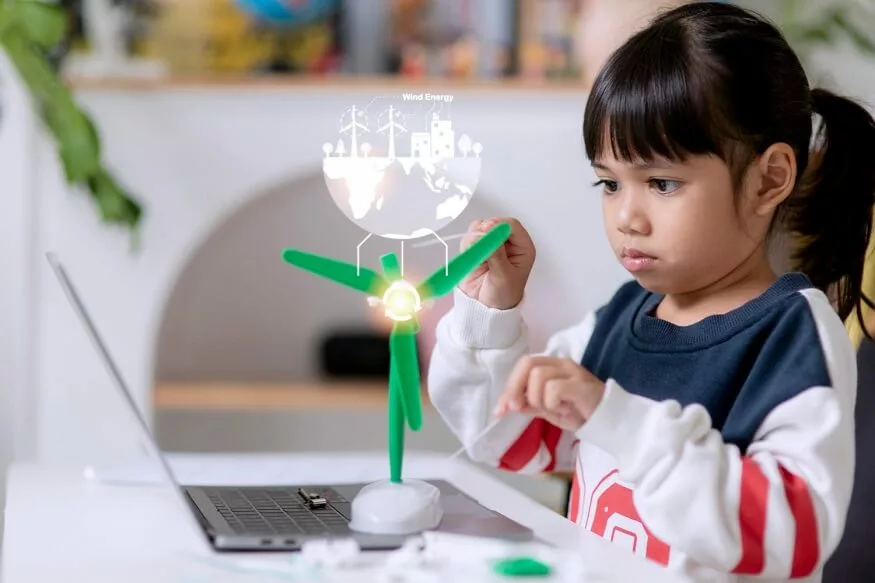The impact of technology on preschool education is a subject of ongoing debate, with proponents highlighting its potential benefits and critics expressing concerns about its potential drawbacks. This article aims to explore the multifaceted effects of technology on preschool education, taking into account the challenges and opportunities it presents.
Technological Tools as Educational Enhancers: Positives
Interactive Learning Apps and Games
One of the positive impacts of technology in preschool education lies in the availability of interactive learning apps and games. These tools engage young learners dynamically and entertainingly, making the learning process enjoyable. Apps designed for preschoolers often focus on foundational skills such as letter recognition, counting, and problem-solving, fostering an early interest in learning.
Multimedia Resources
Technology introduces multimedia resources, including videos, interactive presentations, and e-books, into the preschool classroom. These resources cater to diverse learning styles, offering visual and auditory stimuli that can enhance comprehension and retention of information. Well-designed multimedia content can bring abstract concepts to life, making learning more tangible for young minds.
Customised Learning Paths
Technology allows for personalised learning experiences, adapting to individual students’ pace and style of learning. Preschool educational software often incorporates adaptive algorithms that tailor content based on a child’s progress, providing targeted support where needed. This personalised approach can be particularly beneficial for children with varying levels of readiness and ability.
Virtual Field Trips
While traditional field trips may be logistically challenging for preschoolers, technology enables virtual field trips that transport children to different places and environments. These immersive experiences broaden their horizons, fostering a sense of curiosity about the world around them. Virtual field trips can be especially valuable in introducing preschoolers to different cultures, animals, and natural wonders.
Social Skills Development
Technology can facilitate collaborative learning experiences, even in virtual settings. Preschoolers engaging in educational apps or online platforms often develop teamwork, communication, and problem-solving skills as they navigate shared digital spaces. This collaborative aspect mirrors the social interactions crucial for their development.
Global Learning Connections
Technology opens the doors to global learning, enabling preschoolers to connect with children from diverse backgrounds. Virtual classrooms and online collaborative projects create a sense of global citizenship, exposing young learners to different cultures and perspectives, thereby broadening their understanding of the world from an early age.
Also Read: How Technology Education Can Prepare Children for the Future
The Challenges: Navigating the Digital Landscape
Screen Time Concerns
One of the primary concerns associated with technology in preschool education is the potential for excessive screen time. Prolonged exposure to screens, especially at a young age, has raised apprehensions about its impact on children’s physical health, such as eye strain and sedentary behaviour. Striking a balance between screen-based and hands-on activities becomes crucial to mitigating these concerns.
Digital Divide
The digital divide refers to the disparity in access to technology among different socioeconomic groups. In the context of preschool education, this divide can result in unequal learning opportunities. Children from economically disadvantaged backgrounds may not have the same access to educational apps, devices, and high-speed internet, potentially exacerbating educational inequalities.
Teacher Preparedness
Integrating technology into preschool education requires educators to adapt and embrace new teaching methodologies. Teacher preparedness becomes a key challenge, as not all educators may have the necessary training or resources to effectively incorporate technology into their classrooms. Professional development opportunities are essential to ensure that teachers can maximise the benefits of technological tools.
Privacy and Security Concerns
Preschoolers, being young and vulnerable, raise specific privacy and security concerns when using technology. The collection of personal data and the potential for exposure to inappropriate content must be carefully addressed. Educational technology developers and institutions must prioritise robust privacy measures to protect the sensitive information of young learners.
Digital Distraction and Overstimulation
The immersive nature of digital content can lead to overstimulation and distraction, posing a challenge to maintaining focused attention in preschoolers. Striking a balance between interactive technology use and other hands-on activities becomes crucial to avoid potential negative effects on attention spans and the ability to engage in non-digital tasks.
Limited Physical Activity
Concerns arise over the sedentary nature of screen-based activities, potentially impacting the physical health of preschoolers. Balancing technology use with ample opportunities for physical play and movement is essential. Integrating interactive and physically active educational apps or incorporating movement breaks into digital learning sessions can help address this challenge.
Assessment and Measurement Difficulties
Evaluating the educational effectiveness of technology in preschool settings presents challenges. Traditional assessment methods may not fully capture the range of skills and competencies nurtured through digital learning experiences. Developing comprehensive assessment tools that align with the unique aspects of technology-enhanced learning is crucial for accurately gauging its impact.
Also Read: Sensitive Parenting in the Digital Age: Navigating Technology with Care
The Way Forward: Striking a Balance
Guidelines for Healthy Technology Use
Establishing clear guidelines for the use of technology in preschool education is crucial. These guidelines should address recommended screen time limits, age-appropriate content, and the importance of balancing digital activities with hands-on experiences. Collaboration between educators, parents, and technology developers can help create a framework that promotes healthy technology use.
Investment in Infrastructure
To address the digital divide, there must be a concerted effort to invest in the necessary infrastructure. This includes providing access to affordable devices, ensuring reliable internet connectivity, and supporting initiatives that bridge the technological gap among different socioeconomic groups. Governments, educational institutions, and private organisations can collaborate to make technology more accessible to all.
Digital Literacy Curriculum
Implementing a digital literacy curriculum within preschool education can empower both educators and students to navigate the digital landscape responsibly. This curriculum should cover not only the technical aspects of using technology but also address digital citizenship, online safety, and the critical evaluation of digital content.
Community Engagement Initiatives
Building partnerships between educational institutions, technology developers, and the wider community can contribute to a more holistic approach. Community engagement initiatives can involve parents, local businesses, and organisations to create a supportive network that reinforces the positive aspects of technology use in preschool education.
Research-Driven Policy Frameworks
Developing policy frameworks based on ongoing research is essential for guiding the integration of technology into preschool education. Policymakers should collaborate with researchers to stay abreast of emerging findings and adjust regulations accordingly. This iterative approach ensures that policies are informed by evidence and responsive to the evolving landscape of educational technology.
Also Read: Tools And Technology Helpful For Teachers To Use In Classroom
EuroSchool embraces this digital dawn and treads thoughtfully, preserving the essence of early education – the human touch, the joy of exploration, and the magic of discovery.










